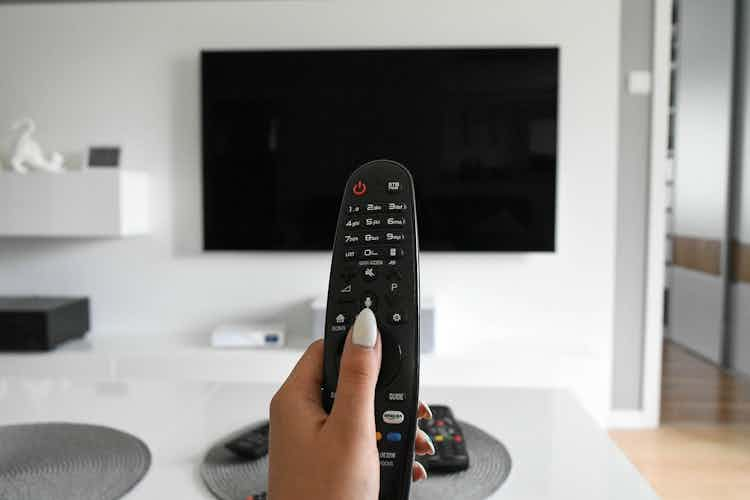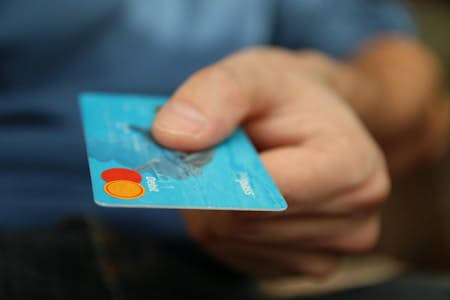We might take care not to leave a tap dripping, but electricity from the grid is going the other way, leaking into our homes unnecessarily. When energy prices are rising amid environmental concerns, keeping track of how much electricity we use is even more critical than ever.
Switching off a gadget here and there may only save a few pence a day, but a reduction in the phantom load of all UK households could make a big dent in energy companies’ profits.
What is a phantom load?
A phantom load refers to all the power wafting into our homes as we sleep or go about our day. Ghost energy drains money in various ways:
- Some gadgets, like routers, smart speakers, or digital alarm clocks, are constantly running.
- Mobile phone chargers remain plugged in, and many other devices take on more electricity long after the battery is full.
- Household appliances that are supposedly not operating are still sucking electricity in standby mode.
Standby mode is perhaps the most insidious waste of money in a home's phantom load. Electrical appliances, particularly those with digital capabilities, still use power in sleep mode. So flicking the off switch doesn't necessarily stop it from using electricity.
If you want to shut the power off completely, it's necessary to switch it off at the wall or unplug it from the extension lead.
What is the purpose of standby mode?
There is usually no advantage to leaving something on standby other than the convenience of not stooping to unplug it. However, if an operating system will be adversely affected by switching the power off completely, then it's best to leave the device on. An example might be when a TV set-top box is scheduled to record something.
While keeping the Wi-Fi on all the time in the background makes sense for most of us, keeping some appliances in standby mode serves no purpose at all. It's the equivalent of dropping change through a hole in your pocket - not very helpful in a cost-of-living crisis.
How much does it cost to leave electrical appliances on standby?
The cost of standby will be unique to each household’s circumstances. Despite the energy price cap, electricity prices vary between suppliers, and appliances differ in how many watts of energy they gobble up. Utilita claims that some gadgets on standby use up to 75% of the energy used when fully on.
Organizations have researched how much those little standby lights and clocks cost to maintain. Still, it is challenging to be precise as many variables exist.
- The Energy Saving Trust suggests that the average UK home uses £65 worth of electricity annually just from having home appliances on standby. Standby mode accounts for between 9% and 16% of the total energy a typical family uses.
- Government advice states that an average household can save £70 on their annual bill by turning appliances off at the socket. This equates to £1.35 per week.
- In 2022, British Gas estimated the real cost of standby for some households to be much higher than £70. For a family with more 'vampire electronics,' the figure could be closer to £147 a year or even higher.
In some homes, with very few gadgets, switching off at the wall might only save enough to occasionally buy a packet of chocolate digestives. Nevertheless, that's an appreciable saving for anyone wanting to stretch their cost of living payment a bit further.
The higher the energy price, the bigger the savings. Therefore, leaving something on standby wouldn't be such a big deal, at least financially, if energy costs were cheaper.
Vampire appliances on standby - which are the worst offenders?
Any appliance manufactured before 2013 will likely use significantly more electricity than newer models when left on standby. Regulators have stepped in to prevent excessive waste of power, and the latest gadgets are designed to be energy efficient for environmental reasons. These days, information about energy efficiency should be available when we purchase any new electrical equipment. Older machines with a standby function may be the worst culprits.
Some appliances cost significantly more to keep in standby mode than others, so it makes sense to unplug those first. So, which gadgets and appliances use the most energy while doing absolutely nothing?
The worst appliances to leave on standby can be found in clusters in specific rooms in our homes. These clusters are each responsible for a notable increase in our annual bills.
The exact amount you can save by switching off at the plug will depend on individual circumstances and the make and model of each appliance.
Gadgets on standby in the living room
Anything involving entertainment wastes the most energy on standby. Most of us leave the TV on standby overnight, and almost all of us never unplug our set-top box. Speakers and smart speakers also add to the phantom load.
The newest TVs are very energy efficient, but a digital set-top box uses more power when not in use. Together, and perhaps with extra TVs in other rooms, this can add up to £48 per year.
Games consoles are another source of entertainment passively draining energy on standby. The average PlayStation uses almost five pence per day in standby mode. Any serious gamer knows that unplugging a games console when not in use means that updates will be delayed, remote access won't work, and there will be a longer start-up time. So it probably won't seem worth the hassle to unplug to save £12 a year.
However, Xbox has devised a solution to the problem by introducing Shutdown mode, which uses 20 times less energy than Sleep mode while retaining some background functionality.
Thankfully, tech manufacturers are beginning to realize that building a wasteful standby mode into every gadget might not be popular with consumers.
The average household could save around £50 a year by switching everything completely off in the living room.
Vampire kitchen appliances
According to British Gas, leaving the microwave plugged in can cost as much as £16 per year. That's just to power the digital clock on the front! Microwaves use much less energy than conventional ovens and are more cost-effective overall. Indeed, many conventional ovens also have a standby mode with a clock.
Large kitchen appliances, such as washing machines, tumble dryers, and dishwashers, all use energy when not fully switched off. Each appliance on its own may cost less than £5 per year in standby mode, but as with entertainment systems in the living room, running our kitchens on standby all night costs money while we sleep.
Unplugging other kitchen gadgets with a standby mode, such as coffee machines, could bring estimated potential savings to an average of £35 per year.
Ghost energy in the home office
It's difficult to imagine not having the internet available at every moment. A router costs around £18 a year to run. Add in the cost of a computer (£11.22) and printer (£3.81) on standby, and a home office can use quite a lot of passive electricity.
The annual cost of a home office on standby could be around £31.
The shower
One way to save money on energy bills is to spend less time in the shower. Electric showers can still be 'on' when the water is off. On standby, a shower can cost around £9 per year.
How can we stop paying for not using our gadgets?
A smart meter tracks energy use throughout the day and night and helps consumers adjust their usage and stay within a budget. However, the phantom load may not be the main problem when bills are too high.
In the first instance, focusing on more effective energy-saving hacks makes sense. For example, we should turn the thermostat down before worrying about the tiny amount of electricity a baby monitor might use on standby. You can find some great advice about cutting the cost of electricity and getting all the help with energy bills you are entitled to in this article.
Get an app
Apps that link to a smart meter can give consumers timely and detailed information to help reduce electricity use. Loop, for example, monitors household electricity consumption overall and displays the benefits of 'turning off the always-on'.
Energy saving plugs
A gadget to manage your gadgets, an energy-saving plug, or a standby saver, switches off the supply by remote control. Handy if you cannot bend down or the plug is hidden behind furniture.
One extension lead
By using the same extension lead for several power-draining devices, it only takes one flick of a switch to shut them all off from the grid. Remember, it's dangerous to overload an extension lead.
In fact, it's safer to switch off wall sockets due to a very small risk of fire or damage to the gadget from an electrical storm.
The worst thing about leaving appliances on standby
It's not just our devices that must be ready to power up at a moment's notice. Many of us expect ourselves to be permanently on standby. Technology makes it very difficult to switch off from contemporary life entirely.
Taking a moment to unplug everything at home can save not just money but our sanity as well. This encourages us to think twice about what gadgets and devices need to be switched on and charged up all the time.
Sitting in a room without appliances running and lighting candles can be relaxing. Especially when there's no niggling worry about the cost of vampire energy.






